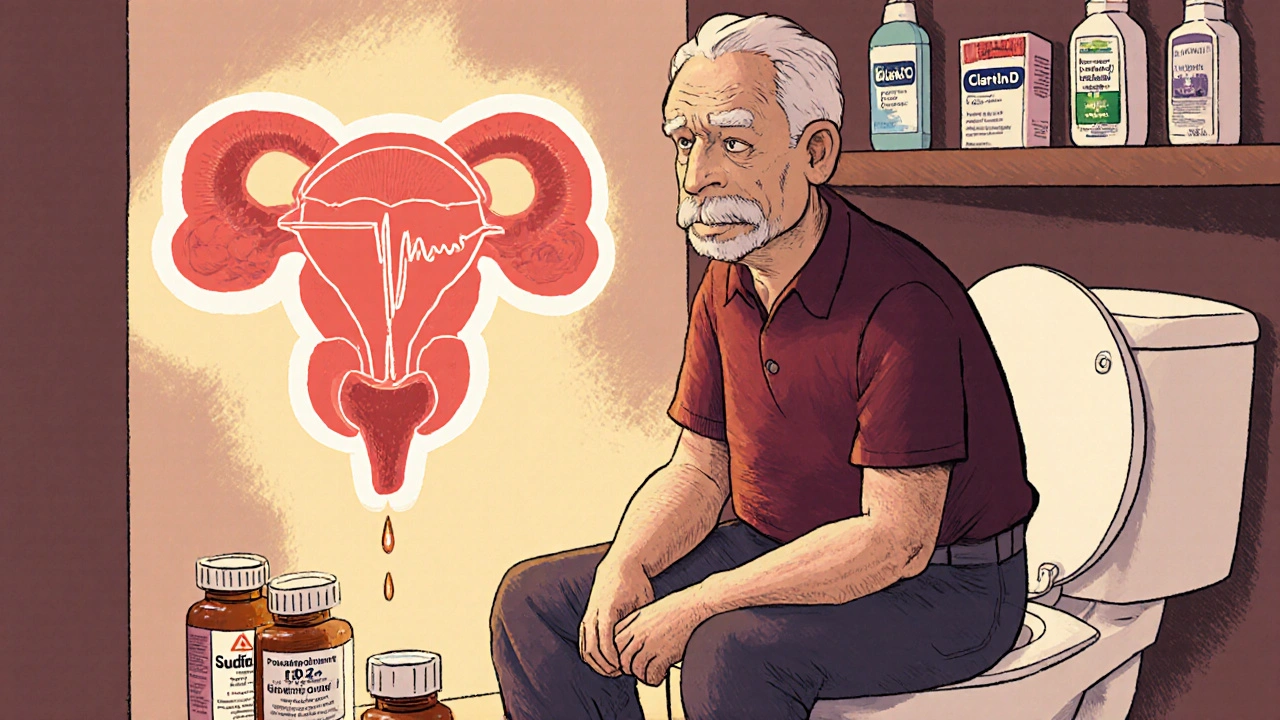BPH: Understanding Benign Prostatic Hyperplasia and Treatment Options
When your prostate grows larger with age, it doesn’t mean you have cancer — it’s likely benign prostatic hyperplasia, a non-cancerous enlargement of the prostate gland that presses on the urethra and disrupts urine flow. Also known as BPH, this condition affects more than half of men over 60 and nearly 90% by age 85. It’s not life-threatening, but it can make everyday activities — like sleeping, working, or even leaving the house — a daily struggle.
BPH isn’t just about frequent urination. It includes weak stream, urgency, nighttime trips to the bathroom, and the feeling that you haven’t fully emptied your bladder. These symptoms don’t happen because of poor habits — they’re caused by physical pressure from an enlarged prostate. Common treatments include alpha-blockers, medications like tamsulosin that relax prostate and bladder muscles to improve flow, and 5-alpha reductase inhibitors, drugs like finasteride that shrink the prostate over time by lowering DHT. Some men also turn to natural options like saw palmetto, though evidence is mixed. What works for one person might not work for another, and side effects range from dizziness to sexual dysfunction.
Doctors don’t always jump to surgery. Many start with monitoring, lifestyle tweaks like cutting back on caffeine or fluids before bed, and timed bathroom visits. If meds fail or symptoms get severe, procedures like TURP or laser therapy can remove excess tissue. But you don’t need to wait until you’re desperate. Early signs — like needing to urinate more than eight times a day or waking up twice or more at night — are clues to act on. The key is knowing when to talk to your doctor before BPH starts controlling your life.
The posts below cover real-world advice on managing BPH symptoms, comparing medications like finasteride and tamsulosin, understanding how prostate health connects to other conditions like erectile dysfunction, and spotting red flags that mean it’s time for a deeper evaluation. You’ll find clear breakdowns of what actually helps, what doesn’t, and how to avoid common mistakes when dealing with this quiet but disruptive condition.

- 10 Comments
Men with enlarged prostates face serious urinary retention risks from common decongestants like pseudoephedrine. Learn which cold meds to avoid, safer alternatives, and what to do if you can't urinate.
